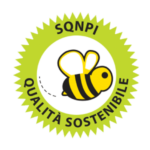Centuries of sustainability
Grapegrowing and winemaking has always been in the very DNA of the house of Collalto.
Operating in accord with the principles of sustainability had already been part of the agricultural restructuring promoted by Abate Vinciguerra VII, when in the years around 1700 that eminent Collalto ancestor introduced his policies of innovation and experimentation.
Likewise working within the optics of today’s concept of sustainability was Ottaviano I, the “Farmer Count,” who in the late 1800s served on the Board of the oenology institute of Conegliano and as majority shareholder on the first Comizio Agrario (Agrarian Institute). It was Ottaviano who built the new winecellar at Susegana, still in operation today.
A sustainable vineyard
The bond with the earth is indeed deep for the house of Collalto. Love and respect are sentiments that translate into uninterrupted actions to preserve its health.
In this regard, the winery launched a fruitful collaboration with agronomists specialised in the study of climate and morphological phenomena, with the goal of achieving an optimal vegetation-crop balance in the vineyards.
Conte Collalto decided to abandon use of herbicides and to exclusively use natural and biological fertilisers. Sustainability and excellence are also served by green manuring, organic fertilisation, emergency irrigation, and cluster-thinning.
We take full advantage of technology-based decisions that rationally plan usage of natural resources such as soil, water, air, and energy; these represent an indispensable tool for growing healthy, sound grapes with optimal ripeness levels.
In addition, our weather monitoring stations in the vineyards, in collaboration with the University of Agronomy in Piacenza, make possible constant monitoring of the vineyards, with a consequent savings in water use and sustainable use of anti-pest treatments.
Such practices allow a production system that ensures eco-sustainable vineyard and winemaking management and thus respects SQNPI standards.
The woods around us: To balance waste emissions, the hectares of woodlands around the winery ensure the protection of precious biodiversity. That protection is also enhanced by enlightened agricultural practices that respect the natural equilibrium of the surrounding ecosystem.
Energy sustainability
The winery has always embraced a philosophy of respect for our environment and of responsible utilisation of natural resources. As part of our striving for absolute excellence, we dedicate ourselves, with passion and love, to using both our own ancient local wisdom as well as up-to-date innovative technology to reduce to a bare minimum our impact on the environment.
Particular attention is given to energy savings, but attention is paid to everything, including meticulous management of water resources and the choice of eco-compatible production materials. Every detail and aspect is carefully evaluated to minimise resource use and to respect the tenets of sustainability.
As a firm believer in environmental sustainability, the winery constructed, early in this millennium, a woodchip heating system that utilises waste-wood from our forests as an excellent source of renewable energy.
Our own private hydroelectric plant, which has supplied power since as early as 1904, was re-built in 2020 and is capable of supplying 90 kWh of electricity.
Our solar panel installation, which covers the roof of the winecellar and warehouses and has been fully operative since summer of 2023, has a capacity of 350 kWh and can supply the energy needs of the entire complex.
Sustainability in the cellar
Conte Collalto is a business that uses an extremely low amount of energy and that continues to strive to be as little impactive as possible.
It has been certified ISO 9001 since 2000, because its goal is to continually measure and improve the efficiency of its quality management system.
The winery has been certified SQNPI (Integrated Crop Management National Quality System) since 2019, a recognition that it is committed to improving agricultural products that are grown in accord with regional integrated production codes. This Quality System is EU-wide. (Reg. Ce 1974/2006).
A rigorous monitoring system of the entire production chain makes it possible for the winery to minimise resource usage and waste, thus reducing environmental impact to a minimum.
All this allows a reduction in water and energy use, with a consequent lowering of CO2 emissions.
The thermoelectric energy utilised in the winecellar comes from self-produced renewable energy sources.
Collalto has also joined the Rafcycle project, which works to re-cycle the siliconed backing of bottle labels by finding sustainable re-use and avoiding discarding or burning them

Cultural sustainability
Directing the Conte Collalto winery is Principessa Isabella Collalto de Croÿ, a businesswoman untiringly committed to the campaign against the gender gap. The percentage of women employed by the winery is about 45%. Professional women, starting with the top position of ownership, carry out responsibilities in administration but in winemaking as well, in the retail shop, and in the vineyards.
A subject crucial for the winery is workplace safety. In addition to assuring the workers’ well-being on the job by providing them with every measure and equipment that may prevent injury and by providing them with appropriate obligatory training, the winery gives all employees the technical clothing most suitable to their responsibilities.
Conte Collalto also considers as cultural sustainability the promotion of the local economy. In particular, the winery promotes economic growth, which actively involves the local populace, generating long-lasting jobs.